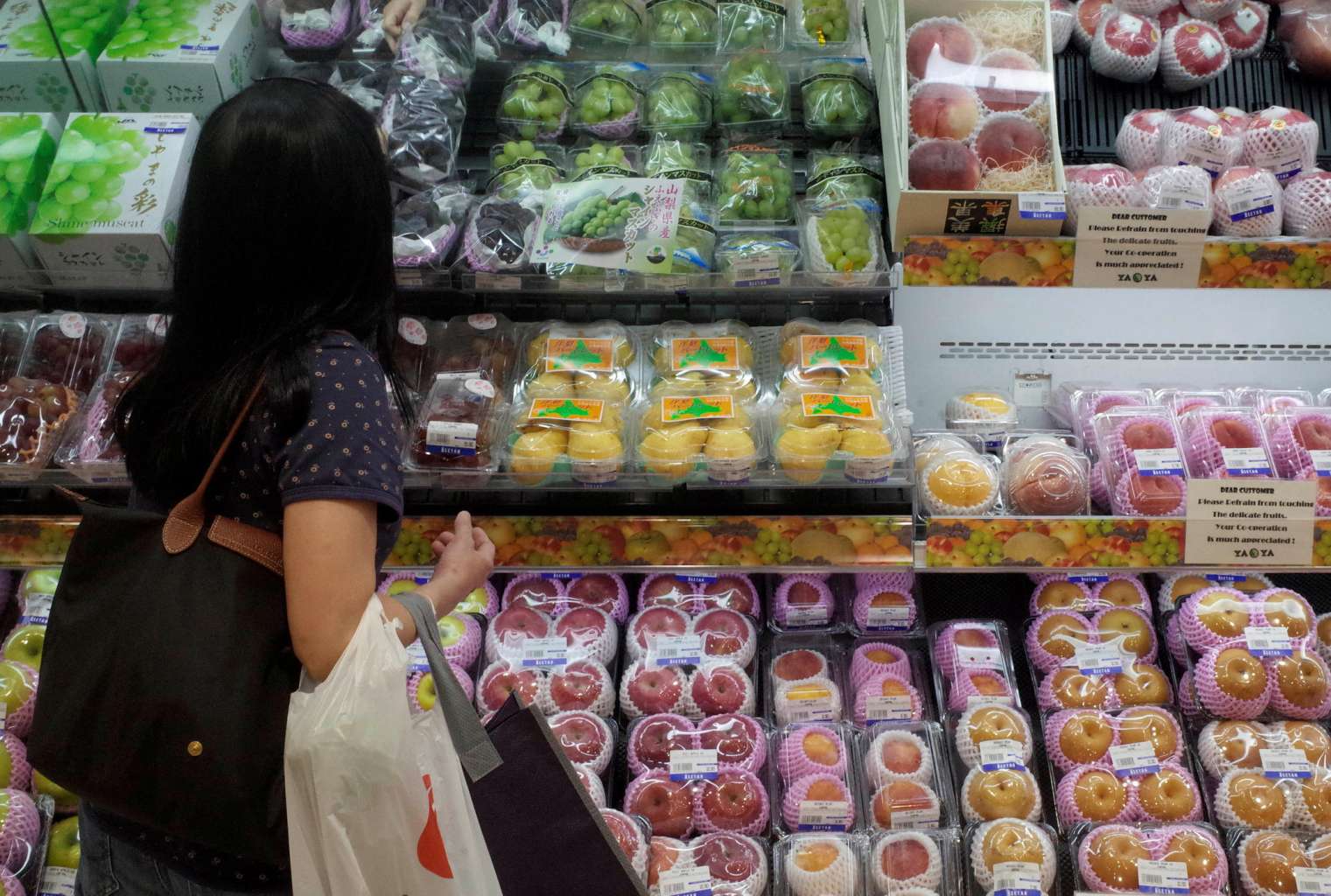Singapore consumer prices post smallest fall in 2 years, down 0.1% in October
Sign up now: Get ST's newsletters delivered to your inbox

A woman shops for fruits at a supermarket in Singapore.
PHOTO: REUTERS
Follow topic:
SINGAPORE - Consumer prices fell by the smallest margin in two years in October, signalling that Singapore's longest spell of negative inflation in decades is very near an end as oil prices bottom out.
The consumer price index (CPI) fell 0.1 per cent last month from a year ago, marking the 24th straight month of decline, according to data released by the Department of Statistics on Wednesday (Nov 23).
Economists polled by Bloomberg had in fact expected October consumer prices to be flat, ending a record two-year slump that began in November 2014.
The lower negative inflation compared to the 0.2 per cent drop recorded in September, came as the smaller drag from the cost of oil-related items more than offset lower food and services inflation, the Monetary Authority of Singapore (MAS) and Ministry of Trade and Industry (MTI) said in a joint statement.
With oil prices bottoming out and the effects from the Government's property-cooling measures lapsing, inflation will probably hover between zero and 0.5 per cent in coming months and pick up gradually after that, DBS Group Holdings said in a note before the data release.
Core inflation, which excludes the costs of accommodation and private road transport, rose to 1.1 per cent in October from 0.9 per cent in September, largely on account of the smaller decline in the cost of electricity, liquefied petroleum gas (LPG) & gas, which more than offset lower food and services inflation.
MAS and MTI said that with global oil prices expected to increase in 2017, all-items or headline CPI has troughed and is projected to pick up to 0.5-1.5 per cent next year, from around -0.5 per cent in 2016, largely reflecting the rise in private road transport cost.
They see core inflation as averaging around 1 per cent in 2016 before rising to 1-2 per cent next year, as energy-related components begin to contribute positively to inflation and temporary disinflationary effects from budgetary measures fade.
"However, the increase in core inflation will be gradual, given the absence of more generalised demand-induced price pressures," they said.
For October, the cost of oil-related items fell at a slower rate of 3.7 per cent in October, compared to the 8.4 per cent drop in the previous month, owing to a smaller decline in electricity tariffs and petrol prices.
Food inflation moderated to 1.9 per cent from 2.2 per cent in the previous month, due to a slower pace of increase in the cost of non-cooked food items and restaurant meals.
Overall services inflation eased slightly to 1.4 per cent in October from 1.5 per cent a month earlier, as lower telecommunications services fees more than offset a stronger pickup in the cost of medical & dental services.
Private road transport cost was unchanged on a year-ago basis, following the 0.4 per cent fall in the preceding month. This largely reflected a smaller drop in petrol prices and a moderation in the decline of car prices.
Accommodation cost remained on a downtrend, falling by 3.8 per cent in October, following the 3.7 per cent decline in the previous month, amid continued softness in the housing rental market.

